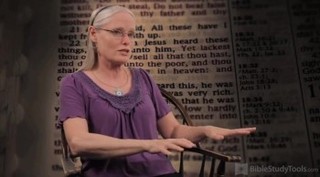
- Recent Translations
- All Translations
Esther 1:4
Share
Settings
Esther 1:4 Meaning and Commentary
When he showed the riches of his glorious kingdom
Xerxes was the fourth king of the Persian monarchy, and was "far richer than all" that went before him, all their riches coming into his hands, ( Daniel 11:2 ) , and now that prophecy began to be fulfilled, "that by his strength, through his riches, he should stir up all against the realm of Grecia"; which he began to do in the third year of his reign, and for which these his nobles might be called together, as to have their advice, so to animate them to come in the more readily into the expedition, by showing them the riches he was possessed of; for to none of the kings of Persia does this largeness of riches better belong than to Xerxes:
and the honour of his excellent majesty;
the grandeur he lived in, the pomp and splendour of his court; he was the most grand and magnificent of all the kings of the Medes and Persians F9:
and this he did many days, even an hundred and fourscore days;
to which seven more being added, as in the following verse, it made one hundred and eighty seven, the space of full six months; though some think the feast did not last so long, only seven days, and that the one hundred and eighty days were spent in preparing for it; but the Persian feasts were very long, large, and sumptuous. Dr. Frye F11 says, this custom of keeping an annual feast one hundred and eighty days still continues in Persia. Cheus F12, a Chinese emperor, used frequently to make a feast which lasted one hundred and twenty days; though it cannot be well thought that the same individual persons here were feasted so long, but, when one company was sufficiently treated, they removed and made way for another; and so it continued successively such a number of days as here related, which was six months, or half a year; a year then in use consisting of three hundred and sixty days, as was common with the Jews, and other nations, and so the Persians F13.
F9 Pausan. Laconica, sive, l. 3. p. 165.
F11 Travels, p. 348. apud Patrick in loc.
F12 In Martin. Sinic. Hist. l. 3. p. 78.
F13 Prideaux's Connect. par. 1. p. 197.
Esther 1:4 In-Context
Videos for Esther 1:4
